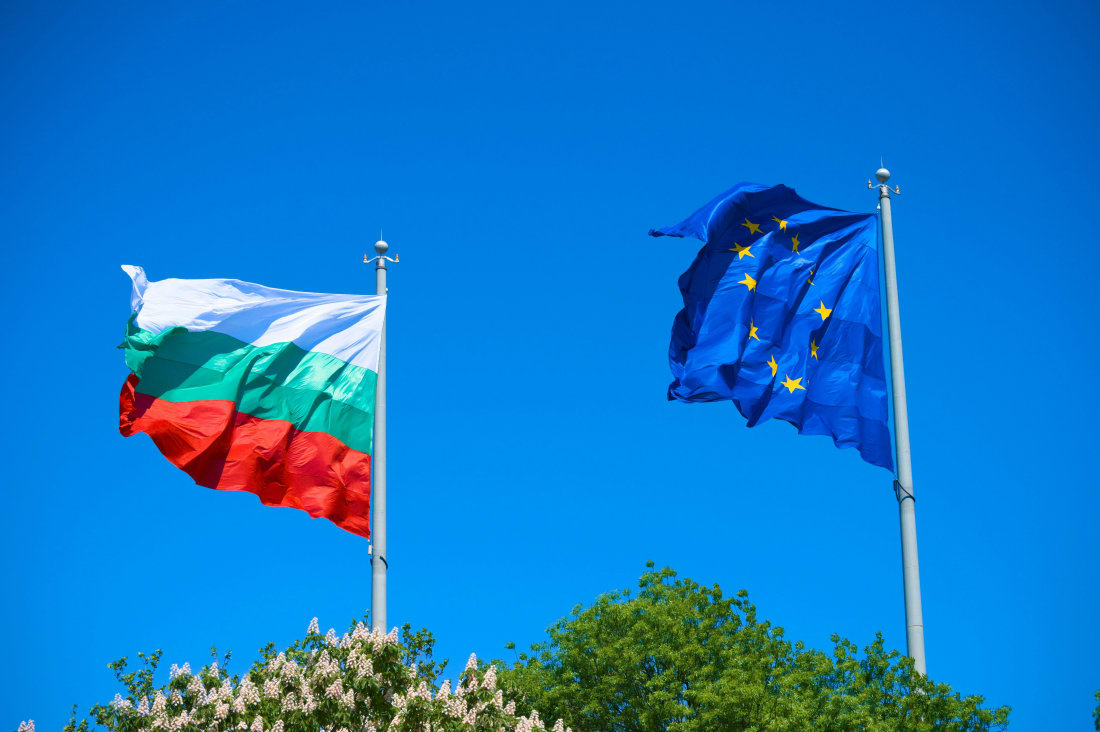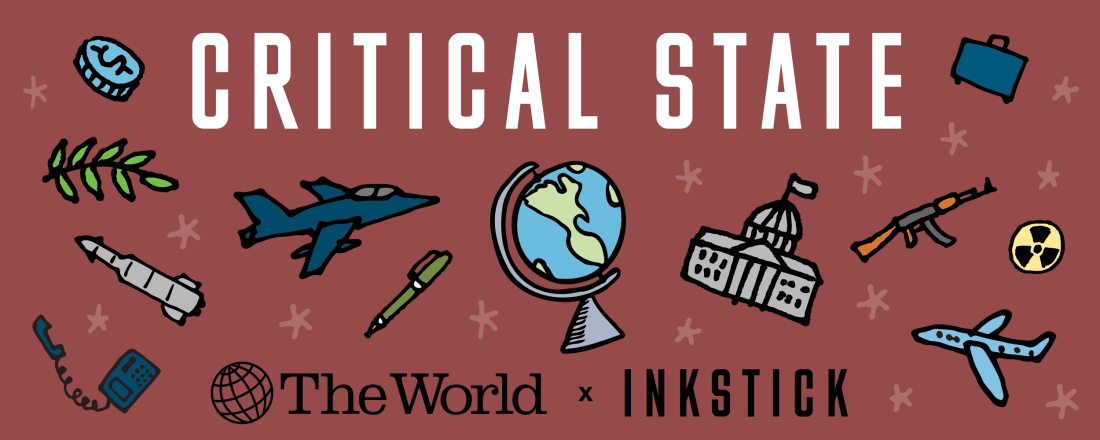|
Critical State: Will Trump Launch a War in Nigeria?
If you read one thing this week … read about the US president's threats to go to war in Africa.
United States President Donald Trump recently announced via Truth Social that he had instructed the US Defense Department to prepare for possible military action in Nigeria, citing what he described as the “killing of Christians” by Islamist militants, Alexandra Wexler reports for the Wall Street Journal.
Trump warned that the US could intervene “guns-a-blazing” and suspend all aid — totaling $550 million this year — if Nigeria failed to protect its Christian population. Nigeria, Africa’s most populous nation, has long struggled with insurgent violence, particularly from Boko Haram, which has targeted schools, churches, and civilians in the predominantly Muslim north.
The group’s 2014 kidnapping of 276 Christian schoolgirls in Chibok drew global outrage and highlighted the scale of religious violence.
Nigerian President Bola Tinubu rejected Trump’s characterization, insisting that religious tolerance remains a core national value in his country.
Meanwhile, analysts have warned that halting US support could destabilize Nigeria’s security infrastructure, especially amid recent military leadership changes and ongoing threats from jihadist groups across West Africa.
Trump’s stance aligned with evangelical concerns in the US, and followed his reinstatement of Nigeria’s designation as a “country of particular concern” for religious freedom violations.
If You Read One More Thing: The US Doesn’t Know Who It’s Bombing
The Trump administration acknowledged killing over 60 people in maritime strikes off the coast of Venezuela without confirming their identities, according to Nick Turse’s report at The Intercept.
Officials told Congress they could not meet the evidentiary burden to prosecute survivors, labeling them “unprivileged belligerents” — a controversial designation under international law.
The strikes, part of an undeclared war on suspected drug traffickers, were justified by a secret declaration of “non-international armed conflict” and a classified legal opinion from the Justice Department.
Critics, including Rep. Sara Jacobs, condemned the killings as illegal extrajudicial executions.
The Pentagon withheld legal briefings from Democratic lawmakers, prompting bipartisan outrage. Experts warned that targeting civilians without imminent threat violated both US and international law.
Despite demands for transparency, the administration refused to release the list of designated terrorist organizations or the legal rationale for the strikes.
Bulgaria Burdened by Trump’s Sanctions on Russian Oil Producers
 |
In late October 2025, Bulgaria’s government took control of the Russian-owned Lukoil refinery in Burgas, citing national security concerns and fuel supply instability, Victor Jack reports for Politico.
The move followed President Trump’s announcement of further sanctions on Russian oil producers and months of tension over EU sanctions targeting Russian oil, which Lukoil had allegedly circumvented.
The refinery, vital to Bulgaria’s fuel supply, had threatened to halt operations amid tightening rules. Officials accused Lukoil of manipulating the market and undermining energy security.
The seizure marked a dramatic escalation in Bulgaria’s efforts to enforce sanctions and reduce dependence on Russian energy, aligning with broader EU policy shifts.
Deep Dive: US Strike on Yemeni Migrant Detention Center Could Be War Crime
In late April, a US airstrike hit a Houthi-run migrant detention facility in Saada, northern Yemen, killing at least 44 people and injuring over 100 others. Most of the victims were Ethiopian migrants who had been detained in overcrowded, poorly ventilated cells. A recent Amnesty International investigation, based on survivor testimony, satellite imagery, and forensic analysis, concluded that the strike lacked justification under international law and may have constituted a war crime.
Survivors described scenes of horror: bodies torn apart, walls collapsing, and people buried under rubble. One migrant recounted how he had been thrown across the room by the blast and awoke to find blood and debris everywhere. Another described pulling injured friends from the wreckage while others screamed for help. Many of the dead were never formally identified, and families were left without answers.
Hagos, a 20-year-old survivor and former detainee, said some “regained consciousness in the hospital three to four days after the attack and we started asking about who was dead and who remained alive and where the others were. I saw the video where they [the rescuers] dug and pulled me out from under the debris… I lost my leg, and others have lost their limbs.”
The report emphasized that the detention center was a known civilian site with no evidence of military activity. Amnesty found no indication that the facility was being used for military purposes or that any armed personnel were present at the time of the strike. The organization called on the US government to disclose its targeting rationale and to explain why this location was selected.
Amnesty also criticized the lack of accountability and transparency surrounding the strike. Despite the scale of the casualties, the US had not publicly acknowledged the incident or offered compensation to victims and their families. The report urged Washington to conduct an independent investigation and to cooperate with international bodies to ensure justice for those affected.
The Saada strike occurred amid a broader pattern of airstrikes in Yemen, many of which have targeted civilian infrastructure. Amnesty noted that the US had provided intelligence, logistical support, and weapons to the Saudi-led coalition, which has conducted thousands of airstrikes in Yemen since 2015. While the coalition claimed to target Houthi military assets, numerous strikes have hit schools, hospitals, markets, and homes.
In this case, however, Amnesty concluded that the strike was directly carried out by US forces, not merely supported or facilitated. The report cited flight path data and weapon fragments consistent with American munitions. It also highlighted the strategic importance of Saada to the Houthi movement, suggesting that the strike may have been part of a broader campaign to pressure the group.
The report placed the incident within the context of Yemen’s humanitarian crisis. The country has endured years of conflict, economic collapse, and widespread displacement. Migrants, particularly from Ethiopia and the Horn of Africa, often pass through Yemen en route to Gulf states, only to be detained, abused, or caught in the crossfire. Amnesty described the Saada facility as overcrowded and unsanitary, with detainees held for months without legal process.
AI’s findings prompted renewed calls from human rights groups and legal experts for greater oversight of US military operations abroad. Critics argued that the strike reflected a dangerous lack of accountability and a disregard for civilian life. They also warned that such actions undermined US credibility and fueled anti-American sentiment in conflict zones.
The report concluded with a series of recommendations. Amnesty called on the US to publicly acknowledge the strike, release all relevant targeting data, and provide reparations to survivors and victims’ families. It also urged Congress to strengthen oversight of military operations and to ensure compliance with international humanitarian law. Finally, the organization demanded that the US support independent investigations and cooperate with international mechanisms to prevent future violations.
The Saada airstrike, according to the human rights watchdog, was not just a tragedy — it was a preventable atrocity that demanded accountability, transparency, and justice.
“The US must conduct a prompt, thorough, independent, impartial and transparent investigation into the air strike and into any other air strikes that have resulted in civilian casualties and where the rules of international humanitarian law may have been violated in Yemen,” Amnesty said.
Show Us the Receipts
Pakistan’s deadly clashes with the Afghan Taliban have dominated recent headlines, but in a new piece at Inkstick, Marcus Andreopoulos argues that Pakistan’s domestic crises posed an equal threat. Protests erupted in Gilgit Baltistan over federal taxation, halting trade with China. In Pakistan-administered Kashmir, residents protested resource exploitation, prompting violent crackdowns and fatalities. Meanwhile, Khyber Pakhtunkhwa saw deadly explosions and accusations of military airstrikes on civilians. These events show Islamabad’s fragile grip on governance and deepened regional grievances. Andreopoulos concluded that Pakistan’s centralization efforts had backfired, intensifying unrest and undermining public trust.
In a new dispatch about Gaza, Inkstick regular contributor Issam Adwan documented the aftermath of Israeli attacks that violated the ceasefire between Israel and the Strip’s armed factions 125 times in its first 10 days. Survivors like Mohammed Washah and Ibtisam Abu Jreiban recounted the destruction of homes, loss of family, and the false promise of peace. On Oct. 29 alone, 104 Palestinians were killed. The story exposed the disconnect between diplomatic declarations and lived reality, portraying Gaza’s ceasefire as performative and tragically hollow.
At The World, Carolyn Beeler revealed how Qoornoq, an island in Greenland that Danish modernization policies closed off in the 1950s and ’60s, has been reclaimed by former residents and their descendants. Though lacking plumbing and stores, the island features solar-powered homes and a restored church. Locals from Nuuk returned each summer to fish, hunt, and reconnect with ancestral land. Museum curator Ujammiugaq Engell noted that forced relocations stripped many of their identities, contributing to generational trauma. Yet Qoornoq’s resilience offered a poignant counter-narrative to Greenland’s troubled history.
It’s NewsMatch Season: Support Inkstick
Inkstick’s nonprofit newsroom is participating in the Institute for Nonprofit News’s annual NewsMatch fundraising campaign again this year. Between now and Dec. 31, your donations will count as double — if you give $100, NewsMatch will match your support. Last year, we raised $6,000. Now, we’re hoping to raise the maximum of $15,000. Will you pitch in to help Inkstick continue exposing the war profiteers, would-be authoritarians, and grifters undermining democracy?
Critical State is written by Inkstick Media in collaboration with The World.
The World is a weekday public radio show and podcast on global issues, news, and insights from PRX and GBH.
With an online magazine and podcast featuring a diversity of expert voices, Inkstick Media is “foreign policy for the rest of us.”
Critical State is made possible in part by the Carnegie Corporation of New York.
You're currently a free subscriber to Inkstick’s Substack. For the full experience, upgrade your subscription.
